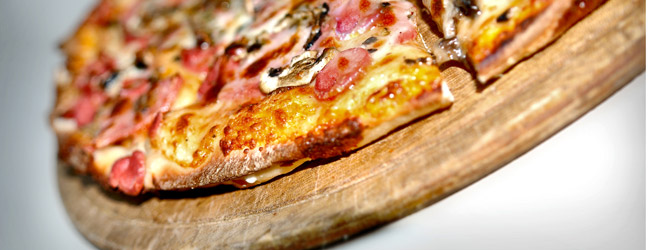Just one month into New Year resolutions, the Super Bowl sneakily rolls around and healthy calorie consumption seems like a long forgotten dream.
Unfortunately, most Americans who enjoyed extra treats this past Sunday could potentially face long-term health risks.
Professor Barbara Troy, a licensed dietitian in the College of Health Sciences, said that while the likelihood of seriously damaging one’s health in the span of a three-hour game is highly improbable, risks are still present.
“I think the bigger likelihood of an immediate health risk would be from way over eating too many (calories), period,” Troy said. “This forces the body to have to process all of that food energy, which may be difficult to do.”
Eric Carroll, student manager and supervisor at the Union Sports Annex Marquette, said the restaurant saw a significant increase in sales and portion sizes during game day.
“We have seen a huge rise in to-go orders,” Carroll said. “People seem to be taking larger orders than usual back to their own personal parties at home.”
Carroll said while more patrons than usual frequented the Annex, the amount of food sold was particularly noteworthy — about 240 pounds of chicken wings were sold.
The Annex’s total sales in Super Bowl foods totaled nearly $2,000, according to Carroll.
In an article on TheExaminer.com, dietitian Kristine Kirkpatrick said that one “guiltless” night of overindulgence may spiral into more days of thoughtless eating, in an online interview.
Kirkpatrick said that wings — a food the Annex specializes in — are especially harmful as they are high in calories, sodium and sugar.
Troy said other popular Super Bowl foods like crackers, chips, cookies and dips contain equally harmful fats.
“Trans fat is the worst fat which definitely increases bad (LDL) cholesterol over time,” Troy said.
Shanda Wilbourn, manager at Papa’s John’s (the official food sponsor of Super Bowl XLVI) on Wells Avenue said the shop offered many incentives on Super Bowl Sunday which resulted in an increase of sales.
“We were selling pizzas for $11 and made about 200 orders — most with three pizzas or more per order,” Wilbourn said.
Wilbourn thinks the larger orders are significant because patrons may be consuming more than usual as a treat on this special Sunday.
Other Papa John’s promotions like a free pizza giveaway every 46 seconds show the demand for certain foods people crave on game day, according to Wilbourn.
However, Troy emphasized the importance in resisting temptations and cravings, as such pitfalls result in unnecessarily high calorie counts.
“Use smaller plates to help keep portions down,” Troy said. “Slow down the acts of eating and drinking … make that plate of food or beverage last.”
However, Troy also said moderation should not only be limited to food choices, as alcoholic consumption is the most immediate risk to health.
The New England Journal of Medicine found that an increase of intoxication come game day accounts for a 41 percent spike in the number of car-related deaths on Super Bowl Sunday.
Carroll said that most heavy drinkers at Marquette do not frequent the Annex to drink but rather host separate parties.
Regardless of location, Troy said getting drunk is the worst health offense because it presents danger and also contains high-calorie content.
While Super Bowl Sunday is over, the health effects may be ongoing. The key to a healthier game experience is prioritizing different aspects, Troy said.
“Emphasize socializing with the people you are with and the happenings in the game,” Troy said.

